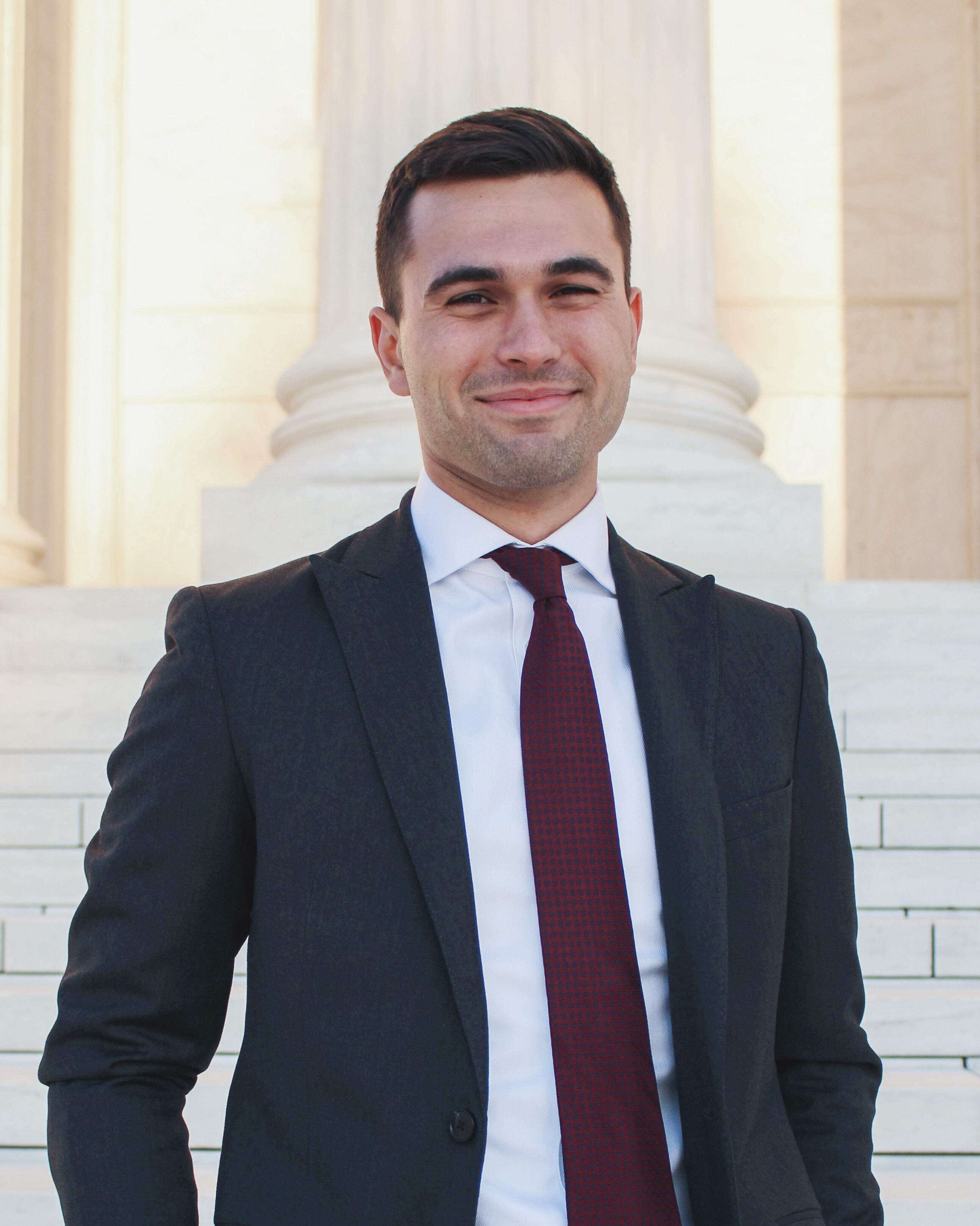From JBU to Capitol Hill
By Cherissa Roebuck
January 15, 2025

Phillip Todd ’18 spent most of his childhood traveling from village to village in rural China. As the son of missionaries, Todd’s childhood travel experiences left him with many questions, especially about the economic stagnation of rural communities around the world. Todd could not have imagined that within a few short years, these questions would lead him on a journey that would land him in a position to influence real economic change in the world — as the chief economist for the U.S. Senate Committee on Homeland Security and Governmental Affairs.
Todd graduated from John Brown University with an undergraduate degree in international business and marketing, and minors in economics and prelaw. Todd said through the mentorship of Randall Waldron, Ph.D., professor of economics and international business at JBU, he realized that the field of economics answered many of the questions sparked by his childhood travels.
After graduating from JBU in 2018, Todd applied for a fellowship at George Mason University. He received the fellowship through GMU’s Mercatus Center, the university’s think tank and research center, which specializes in many of Todd’s areas of interest — international development, economic policy and financial technology.
When Todd was 22, after his first semester of graduate school at George Mason, a position opened at the Senate Committee on Small Business and Entrepreneurship. The committee was looking for a fellow from the Mercatus Center who would be interested in doing some number crunching for them. Sen. Marco Rubio had just taken over the committee, and his ambition was to focus on China’s small business ecosystem, what policies they were crafting to incentivize innovation and how the U.S. could replicate or improve on those. Todd was a perfect fit for the position, and he not only got the fellowship but just three months into the internship, the committee offered Todd a full-time position.
“Getting your foot in the door in Congress can be a challenging process and generally takes people many years,” Todd said. “It was not the pathway I was specifically looking for, but it was almost as if the story was written better than I could have written it myself. My time growing up in China, my time wrestling with those economic questions and my own small business ventures — it all seemed to prepare me perfectly for the committee role. I saw God all over the story.”
Todd jumped into his committee work, and as the 2020 COVID-19 pandemic swept the nation, Todd’s committee work landed him in the position to help write the policy for the Paycheck Protection Program, one of the economic response plans that came through Congress during the pandemic. The committee asked Todd to run the numbers behind the plan and help figure out how to make it work.
“It was interesting because, at the moment, we knew we had to act quickly. While I was actually doing the work, it was hard to pause and reflect. But when it was done, I realized the work I was doing was a once-in-a-lifetime opportunity,” Todd said. “What I really wanted to see out of my career was to encourage human flourishing, so to be able to participate in that during that time was really fulfilling.”
In January 2023, after Sen. Rand Paul took over the small business committee and moved to the Homeland Security Committee, Todd was promoted to chief economist of the Homeland Security and Governmental Affairs Committee and personal economic advisor for Sen. Paul.
Todd attributes some of his success to the work ethic and the “scrappiness” he learned as a business student at JBU. He said JBU’s emphasis on educating the whole person was crucial in preparing him for his career in Washington, D.C.
“JBU’s core values of training the head, the heart and the hand really outlines my career,” Todd said. “Head — my years at JBU and George Mason as I wrestled with economic concepts and intellectual values; heart — how to bring my faith into the workplace and how to redeem the institutions of this world; hands — talking with constituents and seeing the immediate impact of the decisions we make from the bubble of D.C. It’s really fulfilling to look at those three values and know that I’ve made progress in each area over the course of my short career.”

